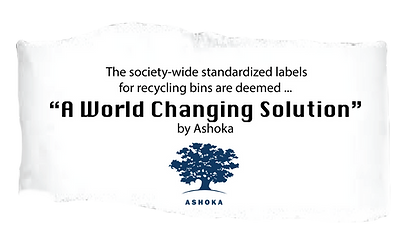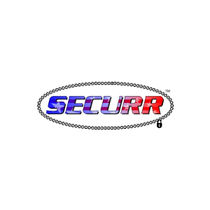CONFUSED ABOUT HOW TO RECYCLE RIGHT?
You've come to the right place.
For decades, plastic and other product packaging labels have made recycling confusing. Most product packaging includes vague or misleading recycling symbols that rarely reflect specific recycling rules in your community. Packaging labels instead can create a false sense of clarity that leave people unsure about what really belongs in the bin.
But, recycling decisions happen at the bin, not on the package. And for nearly 50 years, every recycling and compost bin looked completely different, even when the rules remained the same. Inconsistent labeling at the bin causes widespread contamination and public skepticism. This led to millions of tons of garbage being thrown in recycling and compost bins, undermining the economics and efficacy of recycling.
In 2008, we developed society-wide standardized bin labels. Our nonprofit created the first and only society-wide standardized labels for recycling, compost, and trash bins to fix the problem where it matters most: at the bin.
Today, there are over 11 million standardized labels on bins throughout the U.S. And the standardized labels for bins are proven to be the #1 solution to fix the recycling crisis!

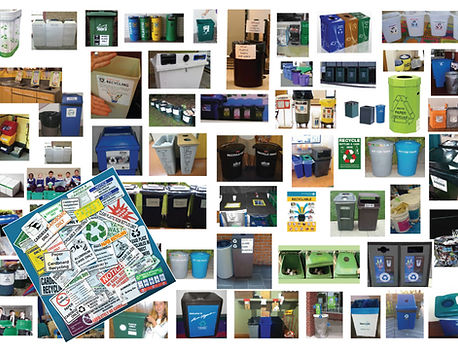
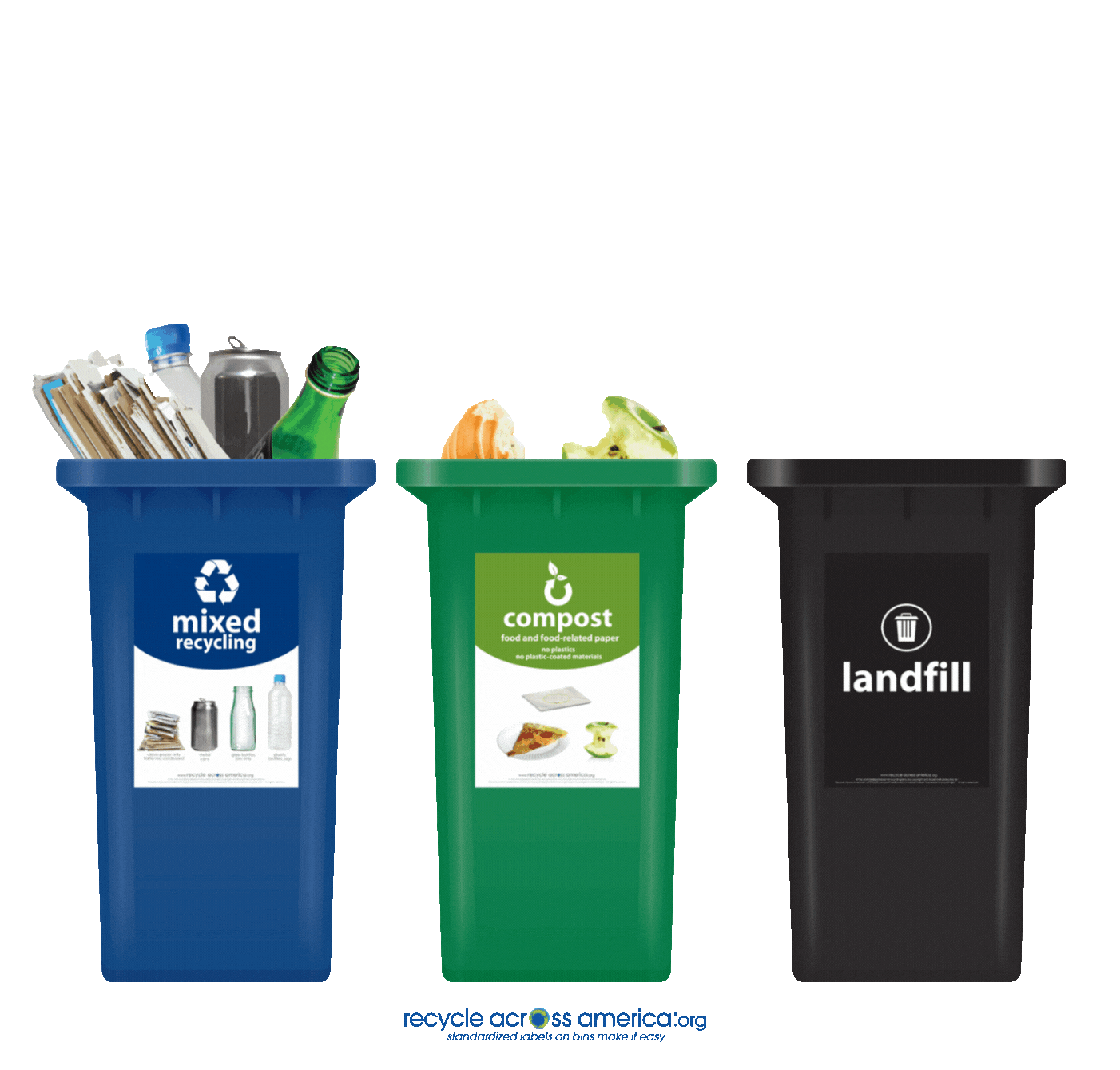
Recently, 17 members of U.S. Congress asked the
EPA Administrator,
Michael Regan and President Biden to implement the society-wide standardized labels for recycling bins nationally to help people begin to recycle more and recycle right, wherever they go.

AN OVERVIEW
FROM THE FOUNDER
THE CONFLICTS OF INTEREST VIDEO
Dear concerned people, businesses owners, municipalities, and elected officials,
As you know, there is a serious waste and recycling crisis in the U.S. and globally. You might be hearing that your recycling is going to the landfill or incinerator, or that your community's recycling program is shutting down because it's becoming too expensive to operate. You might also be hearing devastating statistics about oceans and waterways being filled with trash and plastics.
What you might not know, is that there are tremendous amounts of conflicts of interest in the recycling and packaging industry that profit more when waste increases and when recycling doesn't work, as seen in the compilation of media reports in the attached Conflicts of Interest video.
The good news is that we have a proven solution to fix recycling, which is now part of an effective legislation strategy crafted with other nonprofits, senators, and members of Congress to reduce waste. Scroll down on the website to see THE PLAN and next steps that we can all take.
Thank you for caring about the waste and recycling crisis -- and most importantly, for doing something to fix it!


CHECK OUT OUR RECENT PRESENTATION AT THE UNITED NATIONS:
Along with our partners at International Waste Platform and other collaborators, we have just presented a strategy and proven solutions at the United Nations Sea of Solutions conference to end the global recycling crisis and begin solving the waste in oceans crisis.


HERE'S
THE
PLAN

LET'S FIX IT.

WE ALL NEED TO
REFUSE AND REDUCE
OUR USE OF SINGLE-
USE PLASTICS.
Click to learn how you can reduce
waste and packaging in your life
and in your business and recycle right. It's easier than you think!
Click to learn how to use the standardized labels in your business, school, airport, sports stadium, or residential recycling program
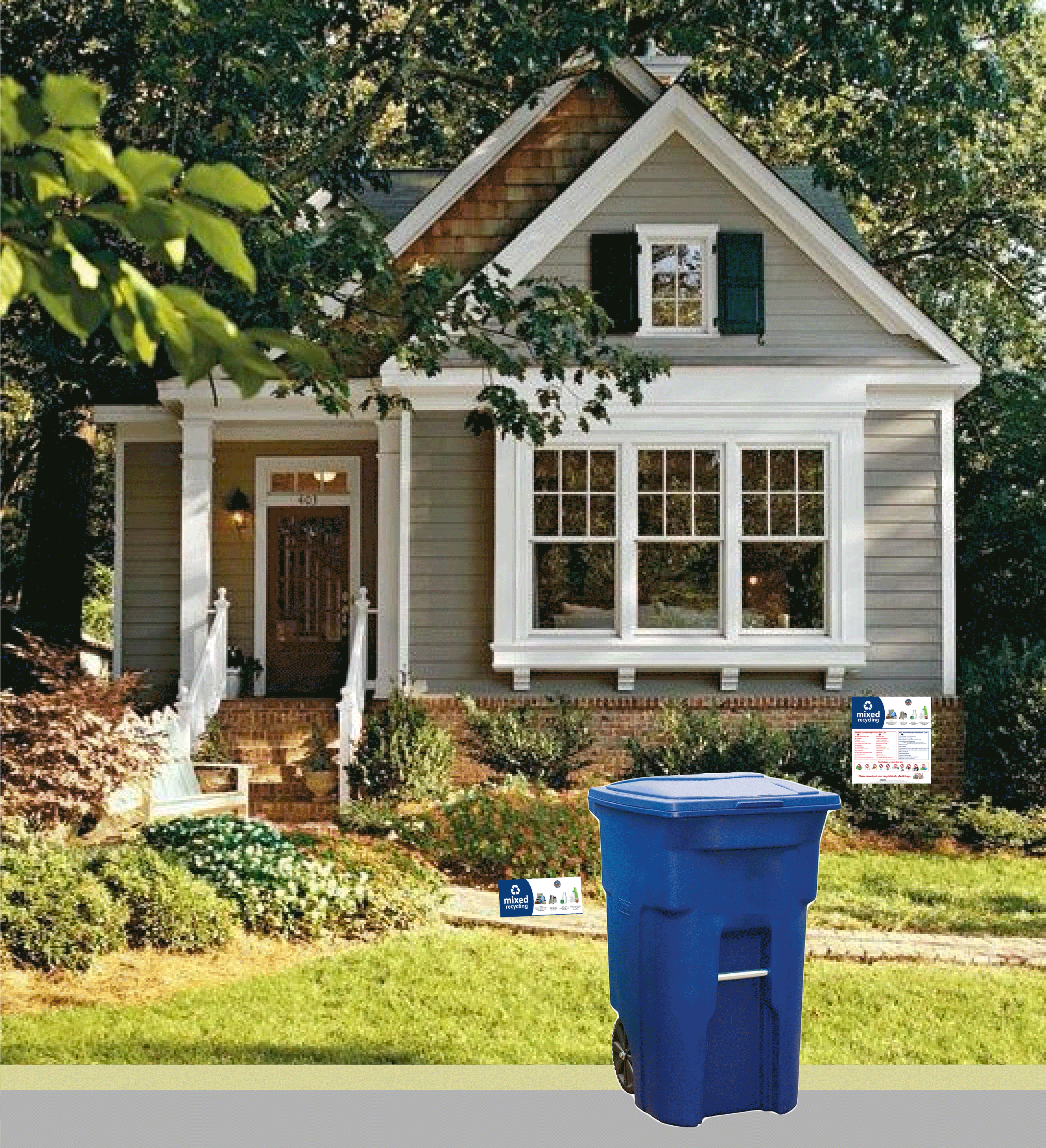
WE ALL NEED TO
DISPLAY THE SOCIETY-WIDE STANDARDIZED LABELS ON ALL RECYCLING BINS, CARTS, & DUMPSTERS EVERYWHERE
THE SOCIETY-WIDE STANDARDIZED LABELS
FOR RECYCLING BINS ARE ...



$1.37 MILLION
SAVED!!!
When Bank of America donated the standardized labels to the public K-12 school district in Orlando, FL (OCPS), the school district's recycling levels increased more than 90% and as a result, the school district has saved over $1.3 million dollars in trash hauling fees (net savings!)

The society-wide standardized waste signage from the nonprofit organization Recycle Across America, played a critical role in USBS achieving the first zero-waste Super Bowl.
We diverted over 91% of the materials from the Super Bowl game to be recycled or composted or reused. It was a great success and the standardized labels helped us reach that goal.
Bradley Vogel,
Recycling Coordinator, and Sustainability Director
US Bank Stadium

The National Parks provide unparalleled opportunities for visitors from across the globe to see our natural and cultural history come alive. These same visitors expect the National Park Service to support comprehensive waste reduction and recycling programs.
With the support of organizations like Recycle Across America, we can help our visitors recycle better by implementing standardized labeling on recycling containers, and in turn, help protect these parks unimpaired for future generations.
Shawn Norton
Chief - Sustainable Operations, U.S. National Park Service

With more than 157 languages and dialects spoken, the Recycle Across America labels have made ‘recycling right’ universally understood for our students and staff. Since July of 2016, Orange County Public Schools has increased recycling by over 5,000 tons.
In addition, the recycling program saved the school district over $360,000 in trash hauling fees in the first school year (2016-2017), and over $1 million in expenditures during the second school year (2017-2018).
Jennifer Fowler,
Director of Environmental Compliance
Orange County Public Schools






_edited.jpg)



























































